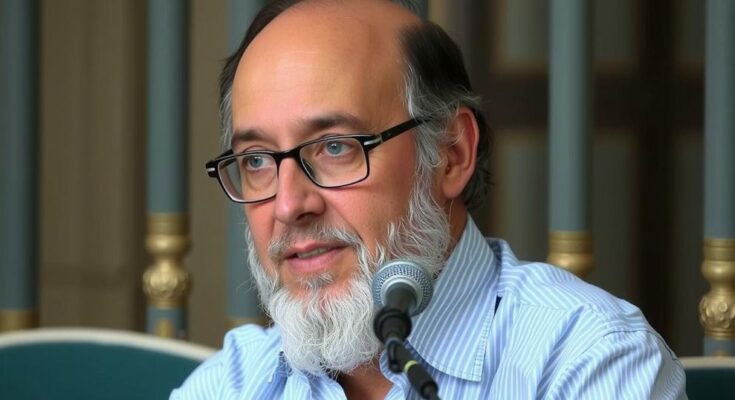Abdel Rahman Yusuf, an Egyptian poet, was detained in Lebanon after attending celebrations for Bashar al-Assad’s fall in Syria. His lawyer has indicated that Egyptian and Emirati authorities seek his extradition, which they argue would breach international human rights laws. Yusuf’s activism against the Egyptian government has raised significant concerns regarding his safety if returned to Egypt.
Abdel Rahman Yusuf, an Egyptian poet and critic of the government, has been detained in Lebanon following his participation in celebrations marking what he described as the fall of Bashar al-Assad in Syria. According to his lawyer, Mohamad Sablouh, Yusuf’s detention was prompted by a lawsuit from the Egyptian and Emirati governments seeking his extradition. His lawyer has stated that extraditing Yusuf would violate the Torture Convention, as he may face torture upon his return to Egypt, where the regime is known for its repressive measures against dissent. The defense intends to seek his relocation to Turkey, where he holds citizenship.
Yusuf, the son of prominent cleric Yusuf al-Qaradawi, has been an active voice against the current Egyptian regime led by President Abdel Fattah el-Sisi. He previously supported the 2011 revolution against former President Hosni Mubarak. His recent video from Damascus, where he celebrated the Syrian revolution, has received considerable attention across Arab social media platforms, inciting both support and backlash. In his public address, he stated: “I am here to celebrate the victory of my revolution. The Syrian revolution is my revolution. The Arab Spring is inseparable. Any attempt to separate the Syrian revolution from the Arab Spring is evil.”
Abdel Rahman Yusuf’s detention follows a long history of political repression in Egypt, particularly under President Abdel Fattah el-Sisi’s administration, which has been criticized for its brutal crackdown on dissent. The regime is notorious for the detention and torture of political prisoners, estimated to number around 60,000. Yusuf’s activism and critical stance towards the government have made him a target for authorities, especially after his vocal support of past revolutions in the Arab world and his recent actions in Syria, where he celebrated the uprising against Assad. His circumstances highlight broader issues of human rights and freedom of expression in the region.
Abdel Rahman Yusuf’s detention in Lebanon amid calls for his extradition to Egypt poses serious concerns regarding human rights and the treatment of political dissidents. His legal team argues that extraditing him would violate international conventions against torture. As this situation unfolds, it underscores the vulnerabilities faced by activists in the Arab world and the oppressive nature of regimes in the region. Yusuf’s case will continue to attract attention due to its implications for freedom of expression and political liberties.
Original Source: www.middleeasteye.net




